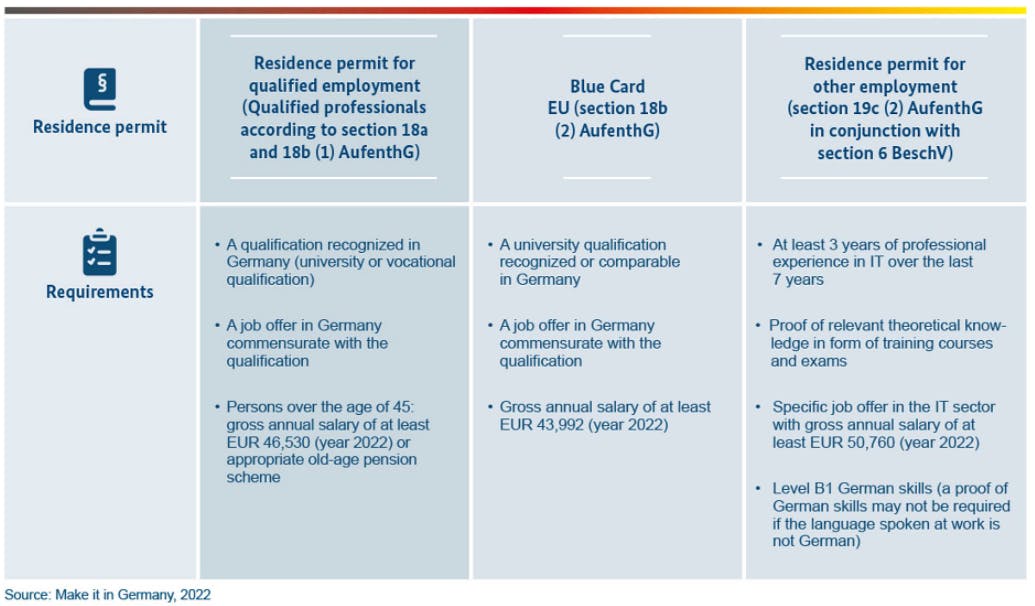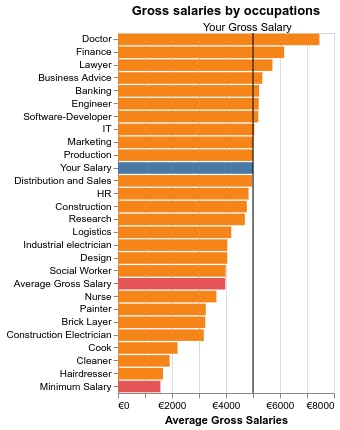Introduction
Germany has a fast-growing software development sector. From 2016 to 2019 the software developers grew from 709,033 to 901,000, which is around a 27% of increase within 3 years. This puts Germany in the first place before the United Kingdom and France. Due to this fast growth, Germany is facing a shortage of Software Developers.
One way of countering the shortage of software developers and keeping the costs for software development under control is to relocate the development teams to other EU countries in Eastern Europe or hire well-trained software developers outside of the EU. Anyone interested in working in Germany as a Software Developer will have a high chance of getting work. In Germany, talented Software Developers are in great demand: organizations are especially searching for Software Engineers, application consultants, and trained specialists in data science and cyber security. Around 96,000 IT positions remained unfilled in 2021.
Migrating to Germany
Software Developers from outside the European Union/EFTA (so-called "third countries") now have easier access to work visas in Germany. The visa you are granted is determined by your qualifications and the employment offer you have received in Germany. The image below provides a quick summary of the three possibilities:

As I wrote above, to be eligible for the above visa application, you need to have an employment offer. You can start preparing a nice CV with pictures. To increase your chances, you should prepare a tailored cover later for each position where you make your best pitch of why you should be hired for that position.
Salary
The salary of a Software Developer can vary from region to region in Germany, for example, I summarized the median annual gross salary for several big German cities:
| City | Median Gross Salary | Net Salary Estimation |
| Berlin | €60,000 | €36,674.02 |
| Munich | €60,653 | €37,032.02. |
| Hamburg | €58,263 | €35,718.97 |
| Cologne | €55,000 | €34,088.25 |
| Stuttgart | €60,587 | €36,995.95. |
You can see that even if you earn the median salary, you will fulfil all the minimum salary requirements in all three visa types. Such a salary also would put you well above the national average salary:
In Germany, a monthly net income of €2,500-€3,500 is considered a good salary. This would allow you to live a decent life in a large German city, including renting a two-bedroom apartment, eating out frequently, and taking weekend trips.
Final note
Germans are quite welcoming to foreigners, especially in big cities. You should be able to travel around with ease if you speak English and can utter at least a few things in German. So don't worry if you don't speak German initially. In the end, you will have the chance to learn either in the workplace or just find German friends who can help.
